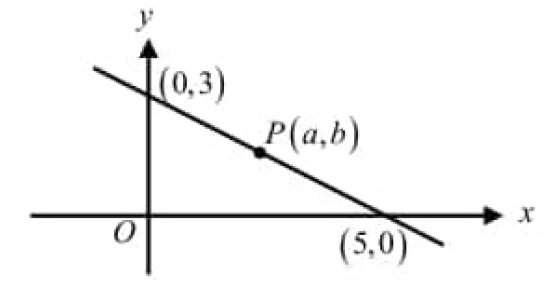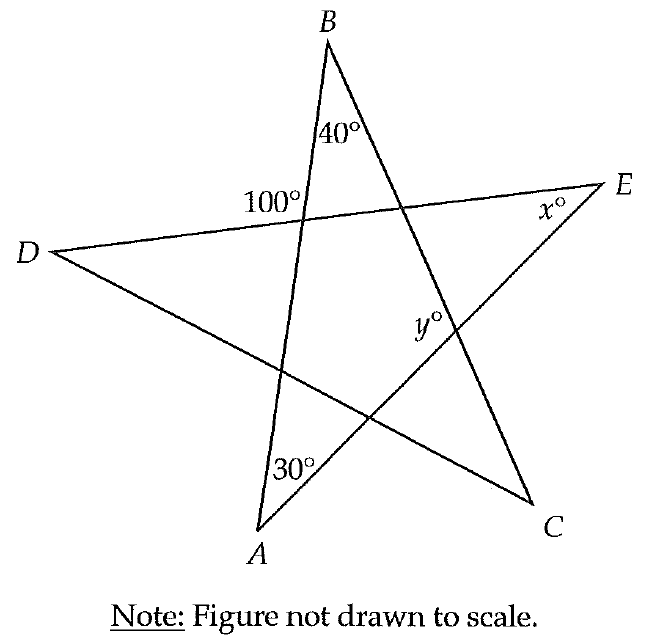Sum of First n Natural Numbers
Formula to find the sum of first n natural numbers :
1 + 2 + 3 + ........ + n = n(n + 1)/2
Proof :
To find (1 + 2 + 3 + ........ + n), let us consider the identity
(x + 1)2 - x2 = 2x + 1
When x = 1,
22 - 12 = 2(1) + 1
When x = 2,
32 - 22 = 2(3) + 1
When x = 3,
42 - 32 = 2(3) + 1
Continuing this, when x = n - 1,
n2 - (n - 1)2 = 2(n - 1) + 1
When x = n,
(n + 1)2 - n2 = 2n + 1
Adding all these equations and cancelling the terms on the Left Hand side, we get,
(n + 1)2 - 12 = 2(1 + 2 + 3 + ........ + n) + n
n2 + 2n + 1 - 1 = 2(1 + 2 + 3 + ........ + n) + n
n2 + 2n = 2(1 + 2 + 3 + ........ + n) + n
Subtract n from each side.
n2 + n = 2(1 + 2 + 3 + ........ + n)
or
2(1 + 2 + 3 + ........ + n) = n2 + n
2(1 + 2 + 3 + ........ + n) = n(n + 1)
Divide each side by n.
1 + 2 + 3 + ........ + n = n(n + 1)/2
Example 1 :
Find the value of
1 + 2 + 3 + ........ + 50
Solution :
Using 1 + 2 + 3 + ........ + n = n(n + 1)/2,
1 + 2 + 3 + ........ + 50 = 50(50 + 1)/2
= 50(51)/2
= 25(51)
= 1275
Example 2 :
Find the value of
16 + 17 + 18 + ........ + 75
Solution :
16 + 17 + 18 + ........ + 75 :
= (1 + 2 + 3 + ........ + 75) - (1 + 2 + 3 + ........ + 15)
Using 1 + 2 + 3 + ........ + n = n(n + 1)/2,
= 75(75 + 1)/2 - 15(15 + 1)/2
= 75(76)/2 - 15(16)/2
= 75(38) - 15(8)
= 2850 - 120
= 2730
Example 3 :
Find the sum of
1 + 2 + 3 + ........ to 40 terms
Solution :
Because the given series is a sum of first 40 natural numbers, the last term in the series is also 40.
1 + 2 + 3 + ........ to 40 terms = 1 + 2 + 3 + ........ to 40
Using 1 + 2 + 3 + ........ + n = n(n + 1)/2,
= 40(40 + 1)/2
= 40(41)/2
= 20(41)
= 820
Example 4 :
Find the sum of
2 + 4 + 6 + ........ to 50 terms
Solution :
2 + 4 + 6 + ........ to 50 terms :
= 2(1 + 2 + 3 + ........ to 50 terms)
= 2(1 + 2 + 3 + ........ + 50)
Using 1 + 2 + 3 + ........ + n = n(n + 1)/2,
= 2[50(50 + 1)/2]
= 2[50(51)/2]
= 2[25(51)]
= 2550
Example 5 :
Find the value of
2 + 4 + 6 + ........ + 256
Solution :
2 + 4 + 6 + ........ + 256 :
= 2(1 + 2 + 3 + ........ + 128)
Using 1 + 2 + 3 + ........ + n = n(n + 1)/2,
= 2[128(128 + 1)/2]
= 2[128(129)/2]
= 2[64(129)]
= 8256
Example 6 :
If 1 + 2 + 3 + ........ + n = 666, then find n.
Solution :
1 + 2 + 3 + ........ + n = 666
Using 1 + 2 + 3 + ........ + n = n(n + 1)/2,
n(n + 1)/2 = 666
Multiply each side by 2.
n(n + 1) = 1332
n2 + n = 1332
Subtract 1332 from each side.
n2 + n - 1332 = 0
Factor and solve.
n2 + 37n - 36n - 1332 = 0
n(n + 37) - 36(n + 37) = 0
(n + 37)(n - 36) = 0
n + 37 = 0
n = -37
n - 36 = 0
n = 36
But n ≠ -37, because n is a natural number.
Hence n = 36.
Example 7 :
Find the average of first 25 natural numbers.
Solution :
Use 1 + 2 + 3 + ........ + n = n(n + 1)/2, to find the sum of first 25 natural numbers.
1 + 2 + 3 + ........ + 25 = 25(25 + 1)/2
= 20(26)/2
= 20(13)
= 260
Average of first 25 natural numbers :
= (Sum of first 25 natural numbers)/20
= 260/20
= 13
Example 8 :
Find the average of first 30 natural numbers which are the multiples of 5.
Solution :
The first natural number which is a multiple of 5 is 5.
The next numbers which are the multiples of 5 are
10, 15, 20, ........
Write the first 30 natural numbers which are the multiples of 5.
5, 10, 15, ........ to 30 terms
Find the sum of all the above numbers.
= 5 + 10 + 15 +......... to 30 terms
= 5(1 + 2 + 3 +......... to 30 terms)
= 5(1 + 2 + 3 +......... + 30)
Using 1 + 2 + 3 + ........ + n = n(n + 1)/2,
= 5[30(30 + 1)/2]
= 5[15(31)]
= 5[465]
= 2325
Average :
= (Sum of all 30 numbers)/30
= 2325/30
= 77.5
Kindly mail your feedback to v4formath@gmail.com
We always appreciate your feedback.
©All rights reserved. onlinemath4all.com
Recent Articles
-
Digital SAT Math Problems and Solutions (Part - 134)
Apr 02, 25 12:40 AM
Digital SAT Math Problems and Solutions (Part - 134) -
SAT Math Resources (Videos, Concepts, Worksheets and More)
Apr 02, 25 12:35 AM
SAT Math Resources (Videos, Concepts, Worksheets and More) -
Digital SAT Math Problems and Solutions (Part 135)
Apr 02, 25 12:32 AM
Digital SAT Math Problems and Solutions (Part 135)

